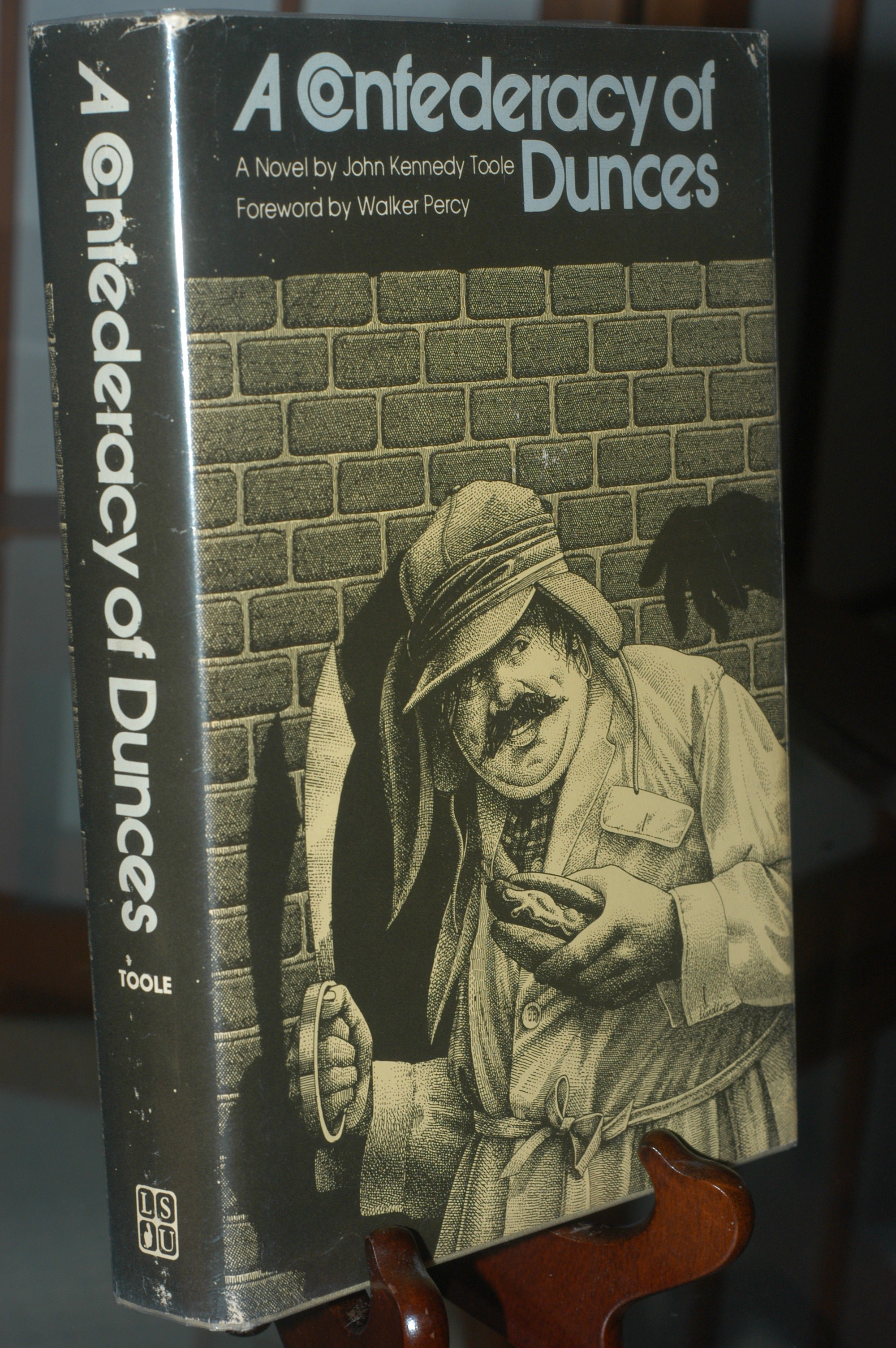
I have heard he is the basis for the Comic Shop Owner on The Simpsons. Its antihero, Igantius Reilly, has been educated with useless subjects to the degree that he is unfit to hold a job or any place in the real world. Today, there are over 1,500,000 copies in print worldwide in eighteen languages. Turned down by countless publishers and submitted by the author's mother years after his suicide, the book won the 1981 Pulitzer Prize for Fiction. Released by Louisiana State University Press in April 1980 and published in paperback in 1981 by Grove Press, A Confederacy of Dunces is nothing short of a publishing phenomenon. Filled with unforgettable characters and unbelievable plot twists, shimmering with intelligence, and dazzling in its originality, Toole's comic classic just keeps getting better year after year. Juvenal, Rabelais, Cervantes, Fielding, Swift, Dickens their spirits are all here. Reilly's matchmaking friend, Santa Battaglia Miss Trixie, the octogenarian assistant accountant at Levy Pants inept, bemused Patrolman Mancuso Jones, the jivecat in spaceage dark glasses. The characters leave the city and literature forever marked by their presences Ignatius and his mother Mrs. Set in New Orleans, the novel bursts into life on Canal Street under the clock at D.

Ignatius' peripatetic employment takes him from Levy Pants, where he leads a workers' revolt, to the French Quarter, where he waddles behind a hot dog wagon that serves as his fortress.Ī Confederacy of Dunces is an American comic masterpiece that outswifts Swift, whose poem gives the book its title. He is in violent revolt against the entire modern age. Reilly is a flatulent frustrated scholar deeply learned in Medieval philosophy and American junk food, a brainy mammoth misfit imprisoned in a trashy world of Greyhound Buses and Doris Day movies. His story bursts with wholly original characters, denizens of New Orleans' lower depths, incredibly true-to-life dialogue, and the zaniest series of high and low comic adventures." (Henry Kisor, Chicago Sun-Times). John Kennedy Toole's hero is one, "huge, obese, fractious, fastidious, a latter-day Gargantua, a Don Quixote of the French Quarter. So enters one of the most memorable characters in American fiction, Ignatius J. The green earflaps, full of large ears and uncut hair and the fine bristles that grew in the ears themselves, stuck out on either side like turn signals indicating two directions at once."

"A green hunting cap squeezed the top of the fleshy balloon of a head. Jonathan Swift, "Thoughts on Various Subjects, Moral and Diverting" You may know him by this sign, that the dunces


 0 kommentar(er)
0 kommentar(er)
